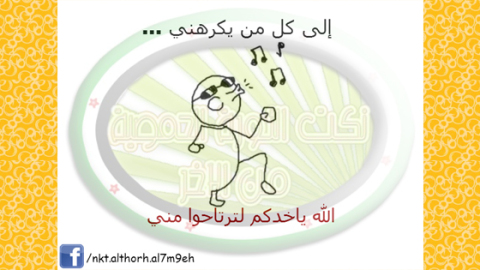"A rabbit is undergoing torture by the Syrian regime’s secret police. Why? Because they want him to confess that it is a donkey." This is but one of the jokes repeated by Syrians, a people characterized by a sharp sense of humor that has grown darker since the outbreak of the uprising in March 2011. A powerful weapon of daily resistance, political humor undercuts the eyes and ears of an omnipresent regime, as well as of the new forms of tyranny trying to impose themselves in the liberated areas.
The uprising irreversibly changed the face of the country since its very early days. The statues of Hafez al-Assad that fell in the early days of the uprising, the ripped images of Bashar al-Assad, and the revolutionary songs chanted in central squares had already liberated that symbolic sphere of oppression.
During the revolution, humor was transformed from its earlier subversive forms, to an overt tool of resistance. Activists started countless Facebook pages to share and propagate jokes among Syrians. One of the largest of these pages, Homsi Revolutionary Humor, posted its latest joke poking fun of the fundamentalist Islamic State of Iraq and Syria (ISIS), and the pro-regime Hezbollah: “ISIS and Hezbollah, should merge into the coalition of the retarded.”
The topics of most of the jokes were prominent regime personnel that had formerly been surrounded by a halo of fear. Dark sarcasm of death and the regime’s machinery of killing are also prevalent in a brave effort to lift morale and face up to death with a laughter. The jokes, in their different forms, come as a reflection of a people who decided to march to freedom with a smile, despite all the destruction that surrounded it.

The president, whose downfall had become the main rallying cry of protestors, is often the object of derision as well. In one such joke, a Syrian is asked, “what would you do if you became a president?” to which he answers, “resign, of course!”
One of the most shared jokes tells the story of a Homsi refugee who was displaced to the relatively safe area of Damascus, only to move back to Homs after a short while. When asked about the reason he answered: “The bombardment you know is better than the one you don’t.” In another joke, a teacher asks a Homsi student: “Where does Homs fall on the map?” The student answered pompously: “Homs does not fall,” as a reflection of the bitter resistance in the city.
The regime’s conspiratorial discourse is also an object of mockery. When they ask a man from Homs why is there a shortage of cooking gas in the country, he answers: “Because, Homs is cooking a big conspiracy.”
This humorous handling of a the tragic situation in the country is part and parcel of the resilience shown time and again by Syrians in protecting their revolution. It evolves from resistance, to an active act of conquest of all the political taboos under the dictatorship. It also provides a helpful indicator of the cultural changes underway in the country. When a Homsi man is asked whether people from Homs will finally call off their daily demonstrations after the fall of the regime, he answers astonishingly: “Why? What does that have to do with anything?!”



